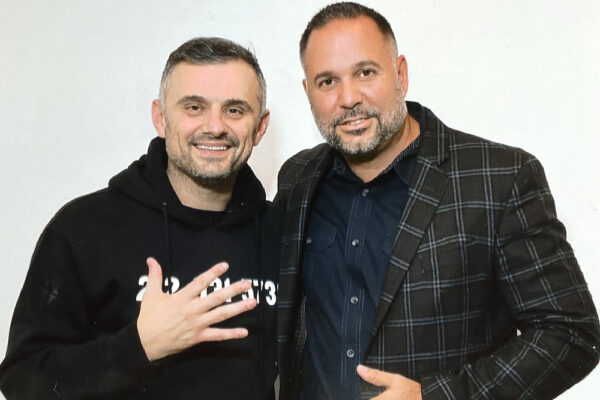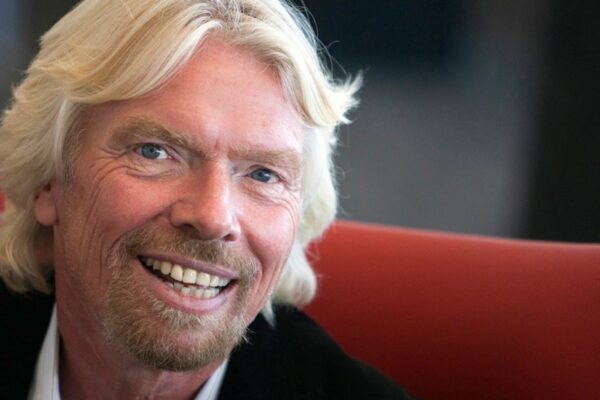Mathieu Maréchal is a French entrepreneur that started a company dealing with translations. Let’s see how owning a niche translation company could grow into a good business in Europe.
Mathieu, tell us a little bit about your business in France. What does it do?
Mathieu: Trad Online is a linguistic services provider, we provide our customers with professional translation and interpreting services (translation of brochures, contracts, Websites, technical documents, etc.) as well as language training, and we also have the aim of being innovative in an industry which, at least in France, is quite mature/old in its outlook and way of doing business.
Translating CVs, blogs, and email translations. It seems like you’re working on particular niches. How important is finding a niche for a small business?
Mathieu: The first advantage of a niche is that it is a way to acquire visibility among a very targeted audience. It also enables to move away from the interest zones of bigger competitors who don’t often target “small” markets. And finally, it’s a great way to test new products, internal processes, and ideas without taking too many risks and while continuing to build up the service offer and company.
Why would someone use professional services to translate a CV?
Mathieu: For many reasons, but I must admit that at first, I was myself a bit astonished by the success we met with this service. On the French market specifically, people who really master several foreign languages aren’t many, and as they are trying to find a new job, they want to put all chances on their side. Having a perfectly translated and professional CV is one of those things that they are looking for. Some people also want to feel secure about their CV and therefore prefer to offer themselves the comfort of knowing that it was translated by professionals.
Can you tell us a few words about your target customers?
Mathieu: Most of our customers are French, small and medium-sized companies (across all industries) but 75% of our turnover comes from our 10 main big-size customers.
And how do you find them? You seem to have a very well-organized site, but what else should do a small business find customers?
Mathieu: We use the usual means to find our customer online: sponsored links (on Google, for instance), cold phoning target companies, doing SEO work on our site and submit it (everywhere, or almost), etc
But we also have a robust activity on the main professional networking sites and have involvement in web marketing actions as well to develop our brand.
Also, you are very involved in networking. Linked, Facebook, Plaxo. Should this be included in the business plans of any small company, or it’s just something that should be done between bits and pieces?
Mathieu: That’s right, as I’ve just said, we are present on all the main professional social and networking sites, like Viadeo, Linked In, Xing, and more private networks (such as Qube, decayenne et a small world). We also buzz on Facebook for the moment, with the creation of a funny cash-prize lottery! Furthermore, we are putting online funny text and video advertisements to create buzz and develop our brand awareness. We also have new buzz ideas and projects, both on and offline.
Therefore, my personal experience is that the use of professional virtual networks definitely should be part of any successful BP, especially to develop a brand and find customers.
You work with over 100 translators. How do you deal with quality issues? I mean 100 translators for sure mean 100 translation styles.
Mathieu: That is one of the recurring issues of our trade.
There is indeed the question of style for some translations like press releases, corporate communication, blog translations, etc. For these jobs, we aim to use the same translator each time for the same customer. When not possible, we resort to another translator with a similar style and always use the same Project Manager who proofreads the final version.
Generally speaking, we use other tools such as translation and terminology management tools like Trados; this guarantees that terminology and style can be consistent between different translators working on a big project or between projects separated in time. Different translators have worked on it.
Most Entrepreneurs are afraid of not finding that great idea to start a business. So how did your idea come up?
Mathieu: Passion and persistence are of more importance than the idea. If you like something, be it selling cars, teaching how to swim, or providing translation services.
Most companies end up doing things quite differently from what was written in their business plans. So I’d say that having a great idea might be a good point, but the main thing is to have a continuous flow of good ideas, adapt to what happens on the market, in your company, etc. And then to make them a reality!
But you also work with huge French companies like Meetic (n°2 worldwide online dating site). How do you reach them?
Mathieu: Meetic contacted us directly through our site.
We have other big French companies among our customers. Those have been traced more easily; most have contacted us through networking sites (yes, again, those networking sites …) and directly by looking on google for translation agencies in the region.
I think you’ve mentioned that the services you provide to big companies are a little different. What exactly are you doing for them?
Mathieu: Yes, Trad Online has a specific « on-demand » offer of services and solutions for some of its important key accounts. For one of these customers, for example, we developed and set up a dedicated, secure, online, translation back-office system, enabling employees of the customer company to post translation requests (simple text or any standard documents: word, excel, PDF, etc.) with a choice among 12 languages, to be translated most of the time overnight. Our translators recuperate the translations in a secure translator panel and translate the documents as soon as they get them. The system offers efficiency and production fluidity advantages but has another plus: there is no minimum invoicing even if the translation is only 5 words in volume.
Talking about big customers, do you remember your first big one? What feelings did you have?
Mathieu: Definitely, it was in 2002, I was finishing my college studies (Trad Online was created when I was still a student), and we sold several thousand Euros of translation work to a marketing company based in Paris. It seems like not much now (financially speaking), but at the time, the company was a few months old, and it was a great feeling. I was very excited, proud and it really motivated me to continue on this track.
Tell us a little bit about your partnership with Viadeo.
Mathieu: When it’s very basic for the moment, we contacted Viadeo to offer our CV translation services, and they accepted because we were the only Website to offer professional quality CV translation with a web marketing system enabling us to offer a discount to their members. We are thus now in the “Premium Club” offers to their paid subscription members.
We want to push the partnership further and plan to continue discussions with them on that matter in the coming months.
You told me that you are looking for ways to expand in France and Europe. What exactly are you looking for?
Mathieu: We are indeed in the midst of starting our international development; we’ve just launched our Italian agency launching (near Bologna) and are currently negotiating with partners in two other European countries.
Trad Online is looking for partners, alone or in a team of two people, who have the entrepreneurial spirit, who know the translation industry, and who would like to join our growing network.
There is an Entrepreneurship myth that most companies fail in the first 5 years. When did you get the feeling that yours might not be one of these?
Mathieu: Very simply: by judging the positive feedback from our customers. Without this main and central validation, it would not be easy. The final decision-maker is the customer.
You have 2 partners. Most entrepreneurs (including myself) don’t think about the importance of choosing the right partners from the beginning. What is important when choosing your partners?
Mathieu: It is important to share the same visions in the long term, to have complementary skills, and more simply to want to work together! To want to follow a path for a while together and succeed together in managing and developing a nice successful business.
Any plans for the future?
Mathieu: Yes, many plans! We must first concentrate on our core business, continue to structure and improve how we do business to stay ahead of the mage. Parallel to this, we are also in an internationalization phase, opening agencies in different countries in Europe; we will also launch new services and are currently working on a new project (secret for the moment) in terminology.
If you could go back in time, what would you do differently?
Mathieu: I’m not really the kind to have regrets, there are, of course, things and decisions that we could have made in another way, and we learn from those mistakes as we go along, but I wouldn’t want to change anything, trial and error, that seems to me to be the way to learn and move up!
Tell us a few words about doing business in France. What are the goods and the bad?
Mathieu: I’d say that there is a big load of paperwork, administrative hassle, etc., but it’s really getting better.
There are also positive developments concerning working with big companies or with State companies and on the job market front. , the main issue seems to be the high level of taxes we have here, which is quite a deterrent to many people. Basically, all the known problems are hopefully going to disappear within the coming years; we’ll see.




